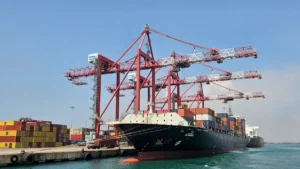The Reserve Bank of India (RBI), along with the Bank for International Settlements (BIS) and central banks of four ASEAN countries, is collaborating on Project Nexus, a multilateral initiative aimed at enabling efficient, faster, and cost-effective retail cross-border payments. The platform is expected to go live by 2026 and will interlink domestic fast payment systems (FPS) of Malaysia, the Philippines, Singapore, Thailand, and India.
Project Nexus Collaboration
An agreement to this effect was signed by the BIS and the central banks of the founding countries—Bank Negara Malaysia (BNM), Bank of Thailand (BOT), Bangko Sentral ng Pilipinas (BSP), Monetary Authority of Singapore (MAS), and the Reserve Bank of India—on June 30, 2024, in Basel, Switzerland. Indonesia will be involved as a special observer.
Efficiency and Future Expansion
Project Nexus aims to make retail cross-border payments more efficient, faster, and cost-effective. The platform is expected to be extended to more countries in the future.
India’s Push for UPI Internationalization
India has been promoting its homegrown FPS, the Unified Payments Interface (UPI), for cross-border person-to-person (P2P) and person-to-merchant (P2M) payments. Countries such as Mauritius, Singapore, Nepal, and Sri Lanka accept UPI payments. The National Payments Corporation of India (NPCI) has been focusing on international payments, breaking into markets like France, Sri Lanka, Singapore, and Mauritius.
Recent Developments
- January 2024: NPCI launched the UPI-PayNow linkage for remittances between India and Singapore.
- January 2024: Google Pay and NPCI International Payments signed an agreement to expand UPI payments outside India.
- February 2024: NPCI partnered with Lyra to enable UPI acceptance in France; UPI services were rolled out in Sri Lanka and Mauritius.
- June 2024: PhonePe collaborated with Sri Lanka-based LankaPay to enable UPI payments in Sri Lanka.




 2026 Business Milestone: Amazon Dethrone...
2026 Business Milestone: Amazon Dethrone...
 V.O. Chidambaranar Port Authority Secure...
V.O. Chidambaranar Port Authority Secure...
 Reliance Industries Limited Secures U.S....
Reliance Industries Limited Secures U.S....








